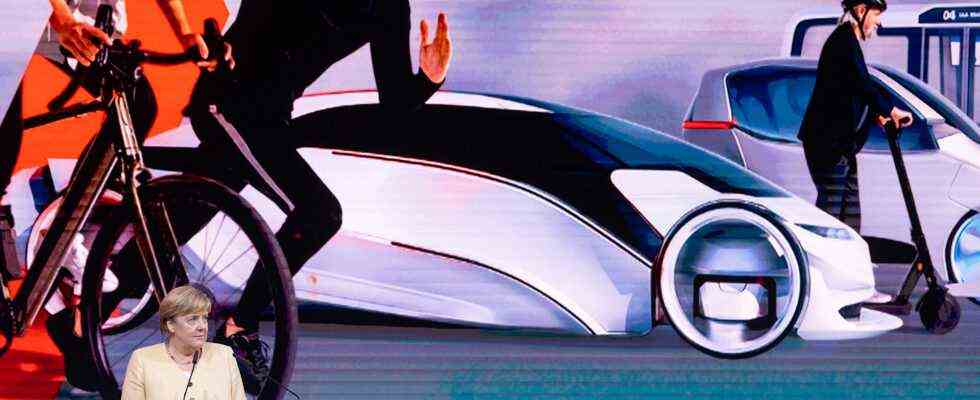Status: 07.09.2021 4:22 p.m.
Merkel opened the IAA auto show for the last time as Chancellor. What was your relationship to the German auto industry like? Was the climate chancellor more of a car chancellor after all?
Angela Merkel and her relationship with the German auto industry – a difficult box. “Angela Merkel was clearly the car chancellor,” says Gesine Lötzsch from the Left Party. Merkel promoted and pushed the German manufacturers. “However, with this constant promotion it has done them a disservice. Because this has made the automotive industry sleep through technical progress.”
Oliver Luksic from the FDP sees it completely differently. “Ms. Merkel was not a car chancellor,” he says. “At the end of the day, in Brussels, she agreed to a very radical transformation that is now also confronting many suppliers with major problems.”
Was Merkel the car chancellor? Matthias Wissmann is one of the people who might be able to clear this up. For the CDU he sat in the Bundestag for a long time and was Federal Minister of Transport. He later became President of the VDA, the Association of the German Auto Industry – and thus, for eleven years, chief lobbyist with a line to the Federal Chancellor. “She was and is a Chancellor who is open to the issues of the automotive industry,” says Wissmann. “But it didn’t just let the automotive industry collect it.”
Scrapping bonus in the Merkel era
You had to convince Merkel with arguments, explains Wissmann. He seems to have succeeded in doing this several times. In 2009, for example, Merkel’s government decided on the scrapping bonus, a government subsidy of billions for car purchases. A victory for Wissmann, a victory for industry. Also in 2013, when Merkel advocated laxer CO2 limits in the EU.
“The Chancellor has already understood that the German automotive industry does not primarily live from small vehicles,” says Wissmann. Because they could hardly be produced in Germany with high wage costs. “The German automotive industry lives to a large extent from premium vehicles.” The trend towards the SUV, the large, heavy, often particularly climate-damaging road cruiser, makes the profits of VW and Co. bubble up.
Good for industry – good for Germany? When Angela Merkel looks back on her 1990s, she says something astonishing: “I was environment minister for four years. And I tried to adhere to many of the demands and wishes of the automotive industry.”
Merkel disappointed with manipulation
But when she said that, at the Junge Union’s Germany Day in 2018, Merkel’s honeymoon with the German car bosses was long over. The 2015 diesel scandal, the manipulation of exhaust emissions at VW and others, disappointed Merkel. “It was cheated and lied,” said the Chancellor later.
And adds: “The fact that people become suspicious of this is really not because of politics, that is because of the automotive industry. There things have been exploited that are completely unacceptable.”
The diesel affair marks a break in the relationship between Merkel and the car companies. The scandal gave her a “new sovereignty”, says industry expert Stefan Bratzel from the Center of Automotive Management. In the 2020 Corona crisis, the manufacturers wanted to enforce new state purchase premiums – also for the old combustion technology. This time they flashed off.
Overslept change?
For a long time, however, Merkel only managed the change to e-cars and climate protection. In the end, it didn’t help the industry, says industry expert Bratzel. “In times of change, it sometimes takes political guidance.” Bratzel calls it a “mistake” that this hardly existed. The change in the 2020s will be extra violent as a result.
Transport is the only economic sector in Germany that has not saved any Co2 since 1990. With every year of standstill, the pressure to act for the time thereafter increases.
Print from the EU
And the EU is also applying pressure. From 2035, according to the Commission’s plan, only new emission-free vehicles are to be registered. Change comes quickly and violently. With hardly foreseeable consequences for manufacturers and suppliers – and for jobs in Germany.
Merkel likes to drive on sight, which has often helped her politically. But if you don’t know where you ultimately want to go, if you don’t have a vision of your own, you can easily end up somewhere where you never really wanted to go.
Merkel – the car chancellor?
Marcel Heberlein, ARD Berlin, September 7th, 2021 8:53 am

